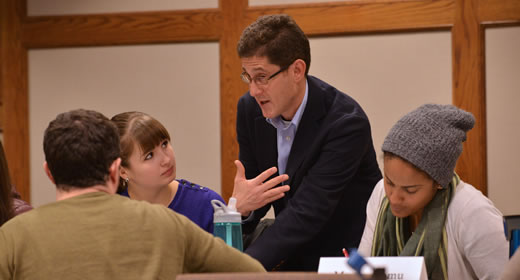
Last week, Brian Jacob, Susan Dynarski and two colleagues from Michigan State released a new paper, "Are expectations alone enough? Estimating the effect of a mandatory college-prep curriculum in Michigan." The paper examines the effect of the 2006 Michigan Merit Curriculum reforms on subsequent student achievement.
The changes enacted in 2006 required Michigan’s high school students to take at least four years of math and three years of science, among other stipulations. Jacob and Dynarski’s paper looked at individual students’ ACT scores and graduation rates, and found that the new curriculum had no significant effect on either indicator of student achievement.
On Wednesday, March 8, lead author Brian Jacob spoke to Michigan Radio's State of Opportunity about the findings in "10 years ago, Michigan raised high school graduation requirements. Did it raise achievement?"
"It looked like students had been improving a little bit before the new curriculum requirements, and they continued to improve roughly at the same rate after the curriculum requirements," says Jacob. "So, while that’s in general good news for students themselves, that suggests the new requirements themselves weren’t having much of an impact."
Vanessa Keesler, deputy superintendent at the Michigan Department of Education, told Michigan Radio that the study underscores "the importance of high expectations for students, but also that having the expectations is not enough."
"I think this study helps us understand the importance of having multiple strategies to help increase achievement for students, and understand that one strategy alone may not be enough for certain student populations,” says Keesler.
Brian Jacob is the Walter H. Annenberg Professor of Education Policy, Professor of Economics, and Professor of Education at the University of Michigan. He is co-founder and co-director of the Ford School's Education Policy Initiative (EPI) and former director of the Center for Local, State and Urban Policy (CLOSUP).